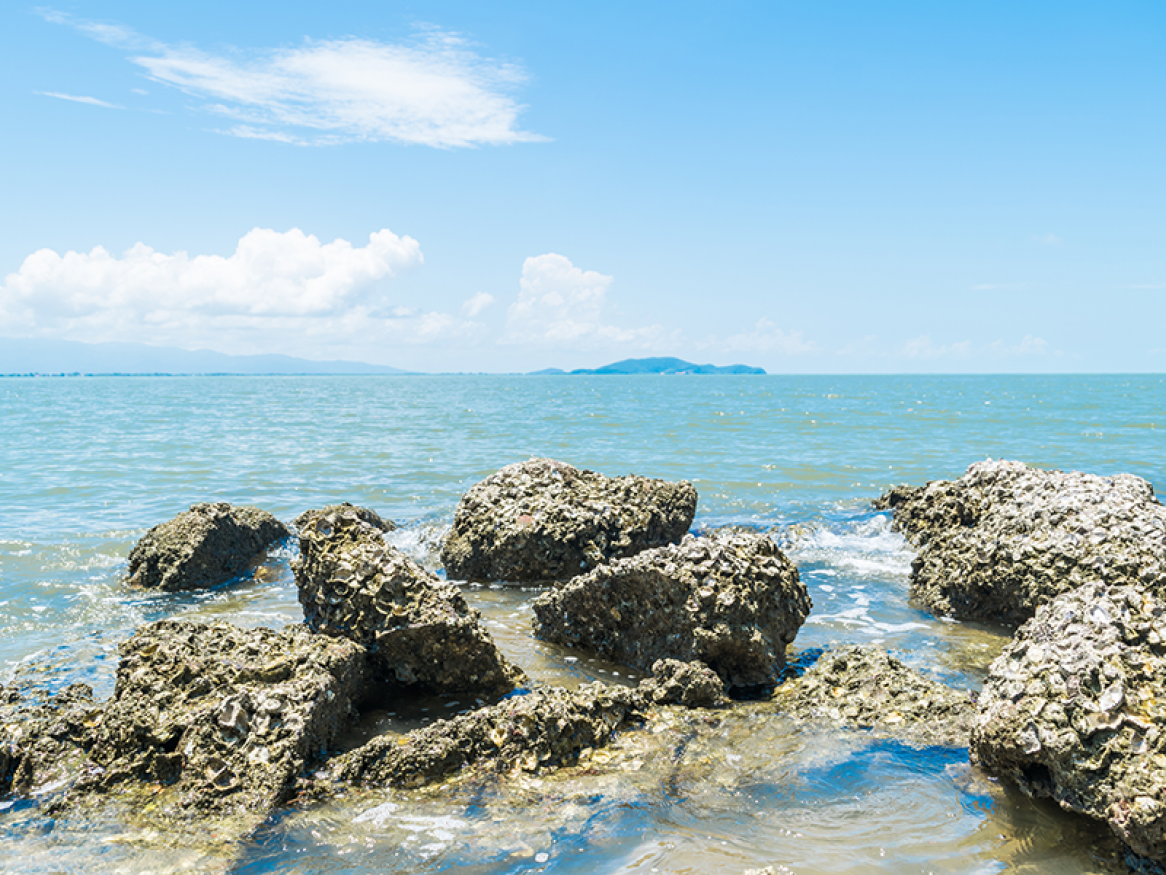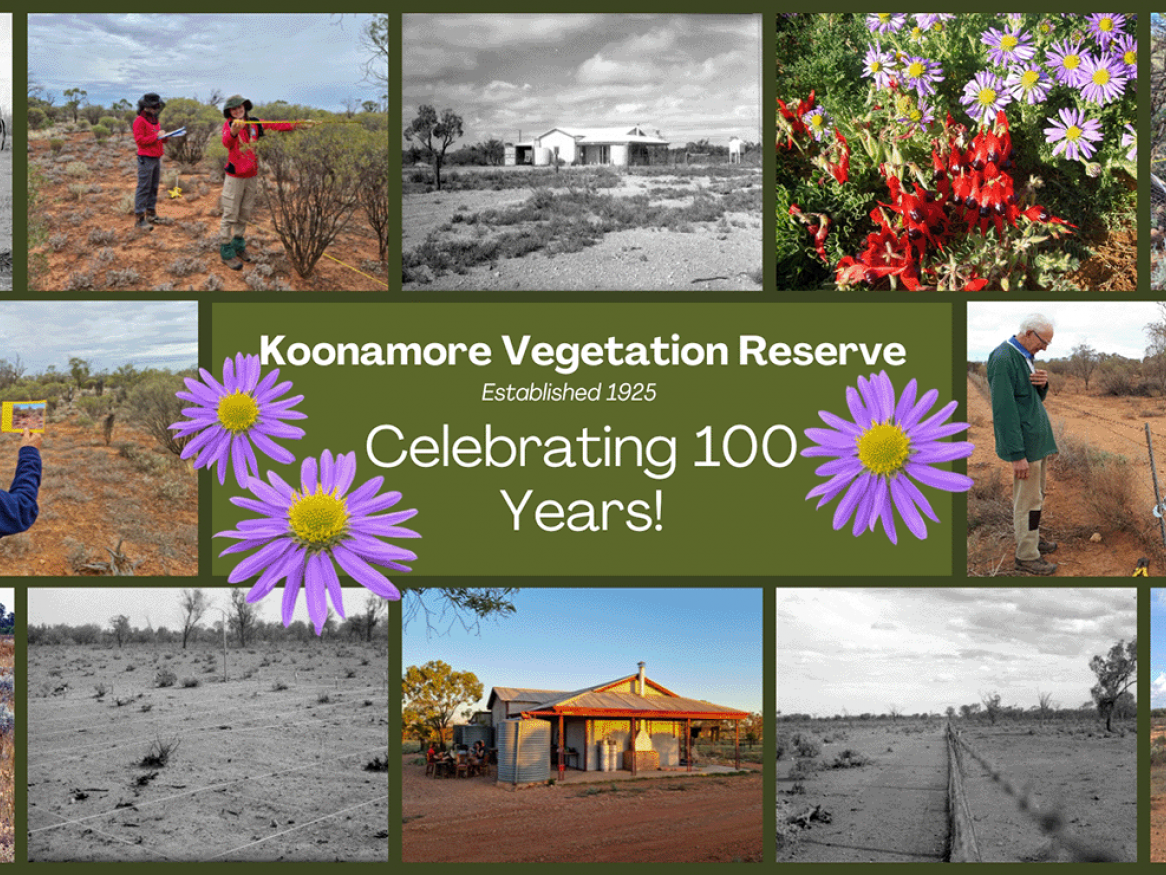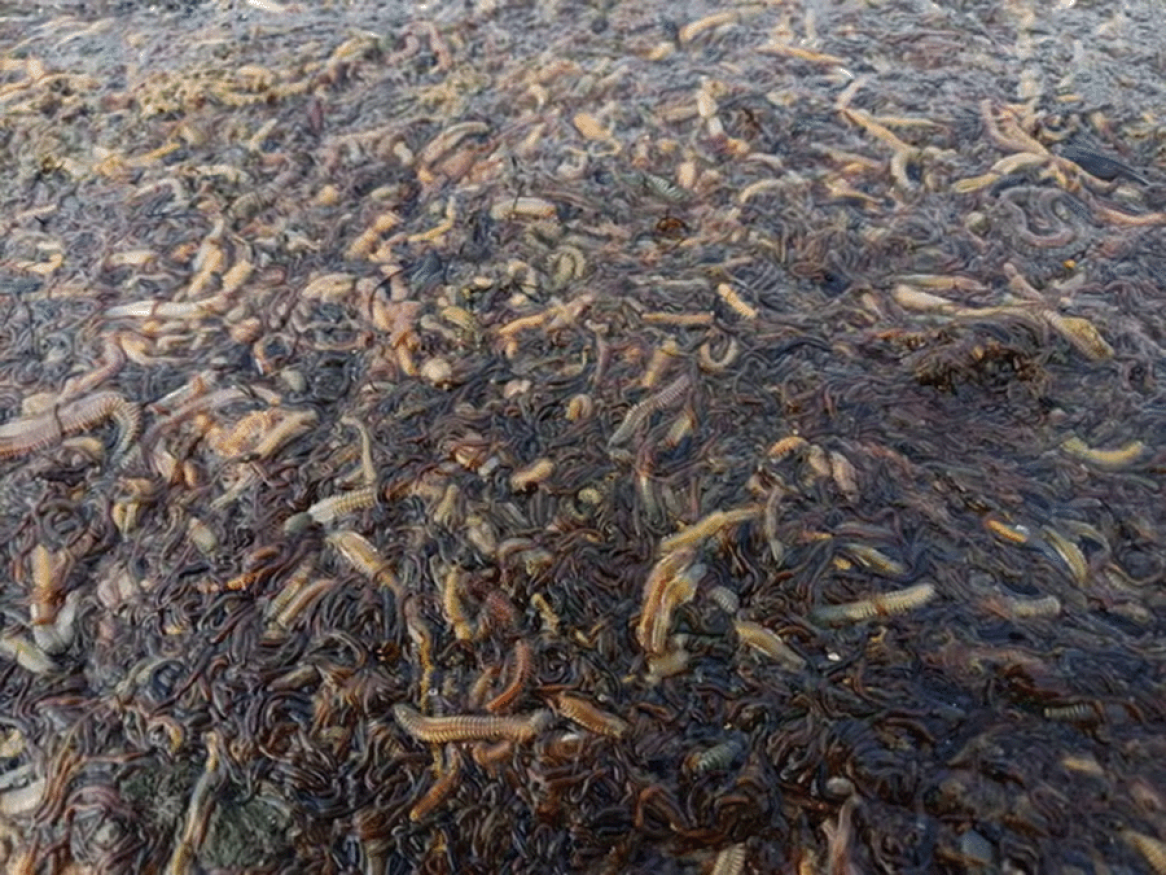News: South Australia
Environment Institute Members Share Insights on the Harmful Algal Bloom at the Federal Senate Inquiry

Dr Dominic McAfee, Future Making Fellow and Professor Andrew Lowe, Director, Environment Institute were invited to appear at the Federal Senate Inquiry for the harmful algal bloom (HAB), alongside EI members Professors Luke Mosley and Ivan Nagelkerkern. Professor Lowe spoke of the need to restore both marine and terrestrial ecosystems to help stop sediment and nutrient run off from the land - by restoring waterways and riverine systems - and soak up nutrients and sediments that enter coastal waters – by restoring shellfish reefs and seagrass ecosystems. Dr McAfee has been working closely with communities, traditional landowners, and school students on community-based restoration projects. One of these projects is creating oyster baskets to help shellfish ecosystem restoration in the Port River in partnership with the OzFish Adelaide Chapter.
15 Million-Year-Old Fossil Shells Reveal Traces of Colour Patterns in South Australia

University of Adelaide PhD candidate Mahala Fergusen, together with Environment Institute members Dr Liz Reed and Assoc. Prof. Diego García-Bellido, examined fossil shells from the Murbko Marl. They discovered 18 different species responded to UV light, displaying stripes, bands, and chevrons that had been hidden for millions of years. Through the use of UV light, this study has provided a better understanding of molluscs but also a vivid reminder of South Australia’s oceanic past.
South Australia Paving the Way to Reduce Plastic Pollution

South Australia has become the first place in the world to ban single-use plastic soy sauce containers, marking a major step in the fight against plastic pollution. Dr Nina Wootton, Environment Institute member, welcomed the move, highlighting the dangers of “convenience packaging” that is too small to recycle effectively. She hops other Australian states will adopt similar bans, positioning South Australia as a global leader in tackling single-use plastics.
[Read more about South Australia Paving the Way to Reduce Plastic Pollution]
Oyster Reef Restoration: Your Chance to Contribute

Oyster reef restoration is looking like the answer we need to combat the Harmful Algal Bloom (HAB), and now you have the chance to help. Environment Institute Future Making Fellow Dr Dominic McAfee recently spoke with ABC Radio Adelaide to discuss this great initiative in partnership with OzFish Adelaide Chapter, and how volunteering to make oyster baskets will help the Port River flourish once again.
[Read more about Oyster Reef Restoration: Your Chance to Contribute ]
Steps to Clean Up the Algal Bloom

Around 30% of SA’s coastline is being impacted by a harmful algal bloom driven by heatwaves, nutrient run-off, and upwelling events. According to Environment Institute members Dr Dominic McAfee and Prof Sean Connell, the bloom is far too widespread for large-scale chemical, physical, or microbial trials. Instead, prevention and resilience are key. Oysters in affected areas are feeding on algae, mussels are cleared of toxins, and SA has committed to restoring 15 hectares of shellfish reefs. As climate change fuels more marine heatwaves and floods, HABs will return. Investing in oyster reef restoration and nature-based solutions could future-proof our coasts.
100 Years of The Koonamore Project

The Koonamore Project based in The TGB Osborne Vegetation Reserve at Koonamore, is celebrating its 100th Anniversary year this year, and which makes it the oldest long term ecological study in Australia and one of the oldest in the world. The site is a clear demonstration of the capacity of recovery in Australian arid ecosystems, even after extreme degradation.
How South Australia's Algal Bloom Is Threatening Marine Life and Public Health

Environment Institute members have expressed concern over the toxic algal bloom affecting South Australia's coastline. Professor Justin Brookes highlighted that while algae play a crucial role in marine ecosystems, the current Karenia mikimotoi bloom is toxic and spreading rapidly due to warm temperatures and nutrient-rich waters. Future Making Fellow Dr Dominic McAfee described the event as an “underwater bushfire,” urging a coordinated response similar to land-based natural disasters. Both experts emphasised the need for continued monitoring and proactive measures to protect marine life and coastal communities.
[Read more about How South Australia's Algal Bloom Is Threatening Marine Life and Public Health]
South Australian Biodiversity Under Threat from Ongoing Drought Crisis

Three Environment Institute members have featured in The Guardian, shedding light on how South Australia’s historic dry spell is impacting ecosystems. Dr Stefan Caddy-Retalic spoke on widespread tree dieback across the Adelaide Hills, Dr Jess Marsh raised alarms for the critically endangered Kangaroo Island assassin spider, and Dr Katja Hogendoorn warned of a looming collapse in native bee populations.
[Read more about South Australian Biodiversity Under Threat from Ongoing Drought Crisis]
Sprigg Ediacaran fossil collection recognised by the International Commission on Geoheritage

Diego García-Bellido Capdevila of the University of Adelaide’s Environment Institute was key to securing global recognition for the Sprigg Ediacaran fossil collection. Now among the top 11 geological collections worldwide, it offers vital insights into the origins of complex life on Earth.
What do new draft guidelines for ‘forever chemicals’ mean for Australia’s drinking water?

The Australian National Health and Medical Research Council (NHMRC) has released draft guidelines for acceptable levels of per- and polyfluoroalkyl substances (PFAS) in drinking water.

Newsletter & social media
Join us for a sensational mix of news, events and research at the Environment Institute. Find out about new initiatives and share with your friends what's happening.
